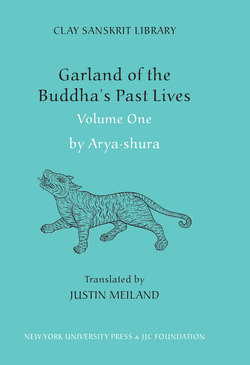Читать книгу Garland of the Buddha’s Past Lives (Volume 1) - Aryashura - Страница 27
На сайте Литреса книга снята с продажи.
Оглавлениеas Ohnuma has observed (2007: 91ff.), such stories often seek to emphasize the transcendent, and at times transgressive, nature of the Bodhi·sattva’s gifts by portraying them as unconventional actions that lead to conflicts with kings, ministers, and other representatives of society’s norms.24
Perhaps the most striking instance of this is expressed in “The Birth-Story of Vishvan·tara” (9), in which the Bodhi·sattva gives away his wife and children to a brahmin as slaves. As Steven Collins has emphasized (1998: 497ff.), this is an act of renunciation that fundamentally jars with social values and the text portrays with sensitive detail the suffering caused by this absolute form of giving, including stirring scenes in which the Bodhi·sattva’s children tearfully try to dissuade their father from his gift and in which his wife becomes hysterical with distress. Nor is the Bodhi·sattva himself unaffected by the pain involved in his dedication to renunciant values:25
The Bodhi·sattva’s mind was shaken by the children’s pitiable lament. Although he told himself that one should feel no regret after giving a gift, his heart burned with an incurable fire of sorrow. His mind seized up, like someone fainting from a powerful poison, and he collapsed there and then.(9.143)
Although it is significant that the Bodhi·sattva’s wife ultimately gives her approval (anumodana) to her husband’s gift of their children, thereby bringing resolution to the story and in fact enabling the Bodhi·sattva to complete his gift when she too is given away, the ambiguities raised by the ________
